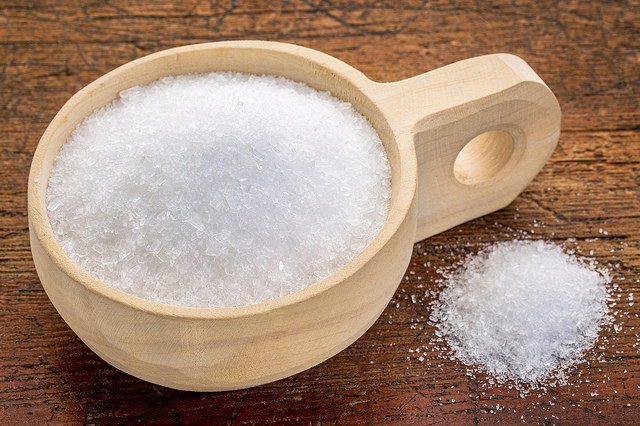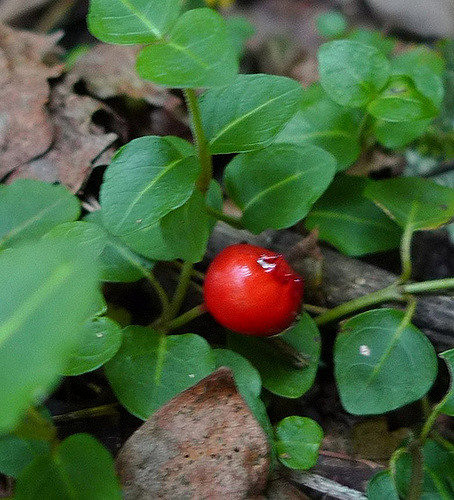PsA Natural Remedies: What are Natural Treatments for Psoriatic Arthritis?
Psoriatic Arthritis Facts and Statistics
A chronic and progressive disease, rheumatoid arthritis, there are quite a few differences, on both the molecular and statistical level. Whereas the incidence of rheumatoid arthritis is greater in woman than men, psoriatic arthritis affects men and women equally. A Rheumatoid Factor (RF) test is conducted to determine if individuals have rheumatoid arthritis. An RF positive test would not indicate psoriatic arthritis; however, the presence of the HLA-B27 genotype is present in 50% of patients with psoriatic arthritis. Though psoriatic arthritis can appear in children, the most common onset of the disease is between the fourth and fifth decade of life. In 85% of cases of psoriatic arthritis, individuals lived with psoriasis before developing arthritic conditions.
An autoimmune disease, psoriatic arthritis attacks healthy joints, causing inflammation and pain. The cause of psoriatic arthritis is unknown; however, genetics and the environment are known to play a role. In the overwhelming majority of cases. Individuals who develop psoriatic arthritis usually have a family member who has also been diagnosed with the condition or who has psoriasis. Environmental conditions, such as a viral or bacterial infection (e.g., strep throat) or stress can be the trigger for the onset of the disease.
While there is presently no cure for psoriatic arthritis, the symptoms are manageable. However, the National Psoriasis Foundation warns that the delay of the onset of treatment for psoriatic arthritis, even by six months, can cause permanent joint damage.
What are the Symptoms of Psoriatic Arthritis?
As with any other type of arthritis, the classic symptoms of psoriatic arthritis are joint pain and joint inflammation. However, those aren’t the only symptoms. There are five types of psoriatic arthritis. The most common types of psoriatic arthritis affect one side of the body and can involve the back and pelvis. Patients affected with rheumatoid arthritis have many of the same symptoms as psoriatic arthritis, however, rheumatoid arthritis almost always affects joints symmetrically. It shows up in the same joints on both sides of the body. That is, if one knee is inflamed, the other knee may also be inflamed.

The following list of symptoms is not meant to be exhaustive; however, it covers many of the most common symptoms of psoriatic arthritis. You may only suffer from one or two of the symptoms, or you may suffer from many of the symptoms listed below.
Common Psoriatic Arthritis Symptoms:
- Joint pain
- Joint swelling
- Joint inflammation
- Joints that are “hot to the touch”
- Stiff joints – especially after prolonged periods of rest (e.g., sleeping)
- General fatigue
- Tendonitis/swelling and pain in the tendons
- Reduced range of motion
- Dactylitis – “sausage-like” fingers and toes
- Nail pitting or any type of nail changes
- Lower back pain
- Heel pain
If you think you have psoriatic arthritis, seek a proper diagnosis from your physician. Your physician will run a series of tests, conduct bloodwork, ask about your family history, and perform a physical exam.
If it is determined that you have psoriatic arthritis, the most common treatment options are drug-related therapies. Non-steroidal anti-inflammatory drugs (NSAIDs) and disease-modifying antirheumatic drugs (DMARDs) are the most commonly prescribed drugs. Both are highly effective at treating joint pain and inflammation. However, if you prefer natural alternatives, there are a number of options for treating psoriatic arthritis.
Natural Remedies for the Treatment of Psoriatic Arthritis
Treating psoriatic arthritis naturally involves both lifestyle and dietary changes. You might also use some of the more common drug treatments in conjunction with these natural remedies to get the most relief from arthritis symptoms.
- Apple cider vinegar: Helps to treat psoriasis – especially psoriasis of the scalp. However, be careful not to apply apple cider vinegar to any psoriasis that is cracked or bleeding.
- Turmeric: Turmeric is widely known for its anti-inflammatory properties. It is the active ingredient – curcumin – found in turmeric that relieves joint inflammation. You can ingest turmeric in foods or take turmeric capsules.

- Capsaicin: Capsaicin eases joint pain by blocking pain receptors. It also has been known to ease psoriasis outbreaks.
- Oats: Soothes itchy skin from psoriasis. Take an oat bath or put on oat cream to relieve symptoms.
- Tea tree oil: Eases skin inflammation; however, it may irritate sensitive skin so use caution when applying.
- Epsom salts: An Epsom salt bath can do wonders to relieve joint pain and joint inflammation. The warm water from the bath can help ease stiff joints and the magnesium in the Epsom salts is known to treat itchy skin from psoriasis.

- Oregon grape: Application of creams or lotions with Oregon grape as an ingredient are known to soothe itchy and irritated skin that results from psoriasis.
- Aloe vera: Aloe vera has similar properties as Oregon grape. When applied topically, aloe vera can soothe skin irritation caused by psoriasis.

- Fish oil: Omega-3 fatty acids, as found in fish oil, are known to battle joint inflammation and pain. Fish oil can also help minimize painful swelling caused by psoriatic arthritis.
- Ginger: Ginger is well known for its anti-inflammatory properties. It’s a common ingredient to ingest for all types of arthritis, just like turmeric.

- Willow bark: Salicin, the active chemical in willow bark is similar to aspirin. In fact, willow bark has earned the title of “herbal aspirin.” Willow bark is known to relieve arthritic pain occurring in multiple types of arthritis.
- Boxberry: Boxberry extract is known for its anti-inflammatory properties. Also called “teaberry” and “wintergreen,” boxberry has been used by Native Americans as an anti-rheumatic for years.

- Boswellia: Also known as Indian frankincense, Boswellia has known anti-inflammatory effects for individuals living with arthritis. If you’re treating psoriatic arthritis with Boswellia, make sure you are taking it in capsule form and not as a topical treatment. Boswellia as a topical treatment can irritate psoriasis.
Lifestyle Changes to Treat Psoriatic Arthritis
In addition to the above listed natural remedies for psoriatic arthritis, a number of lifestyle changes can help relieve symptoms. Some of the most common lifestyle changes recommended by doctors include:
- Avoid inflammatory foods: If you have psoriatic arthritis, try to avoid eating foods that cause inflammation. These include caffeine, alcohol, sugar, dairy, gluten, shellfish, and trans fats. Anti-inflammatory foods, such as leafy greens, blueberries, pineapple, walnuts, and broccoli, promote healthy joints.
- Exercise: Regular exercise increases your range of motion and decreases joint stiffness. Try to participate in exercises that are joint healthy – such as swimming, biking, and yoga.

- Lose excess weight: Excess weight can cause additional strain on your joints. If you’re already suffering from painful joints because of psoriatic arthritis, you can minimize any additional impact on your joints by maintaining a healthy weight. The more stress on your joints, the more pain you’re likely to feel.
- Use acupuncture: Acupuncture has been found to be very effective in reducing joint pain, back pain, and knee pain – common areas affected by psoriatic arthritis. Acupuncture works by releasing natural painkillers into your body – including endorphins and serotonin. It is also known to trigger anti-inflammatory compounds. This ancient Chinese medicine has proven to reduce pain and inflammation and increase mobility for several forms of arthritis.

- Reduce stress: Stress can be a trigger for the flare-up of psoriatic arthritis symptoms. If you find that stressful conditions tend to bring on bouts of psoriatic arthritis symptoms, you can avoid these types of situations, if possible.
- Take frequent rest breaks: Taking frequent rest breaks is a good lifestyle change to make if you have psoriatic arthritis. Because generalized fatigue is so common with the disease, you can wear yourself out much more quickly than someone not living with the condition. Frequent breaks can minimize your fatigue.
- Utilize hot and cold therapy: Hot and cold packs can reduce inflammation and pain in joints. Hot packs tend to loosen joints and lessen pain. Cold packs help to ease inflammation and joint pain. Alternating between the two types of therapy can be an effective way to minimize psoriatic arthritis symptoms.
- Meditate: Meditation can ease related psychological symptoms of psoriatic arthritis, such as depression and anxiety. The National Psoriasis Foundation also promotes the use of meditation as an anti-inflammatory agent. Levels of interleukin-6, an inflammatory marker, have been shown to decrease after meditation.

Natural remedies and lifestyle changes are abundant when it comes to psoriatic arthritis. If you don’t wish to undergo conventional treatment plans for your psoriatic arthritis symptoms, you can alleviate some of the joint pain and inflammation caused by the disease through the above methods.
Most optimally, you can utilize the abovementioned natural therapies to treat psoriatic arthritis in addition to any drug therapies your doctor prescribes. It’s likely that a combination of all three types of treatments will give the best results. Just keep in mind the sooner you start to treat your psoriatic arthritis symptoms, no matter the treatment plan, the better. If you believe you are living with psoriatic arthritis, but do not have an official diagnosis from your doctor, contact him or her today.
